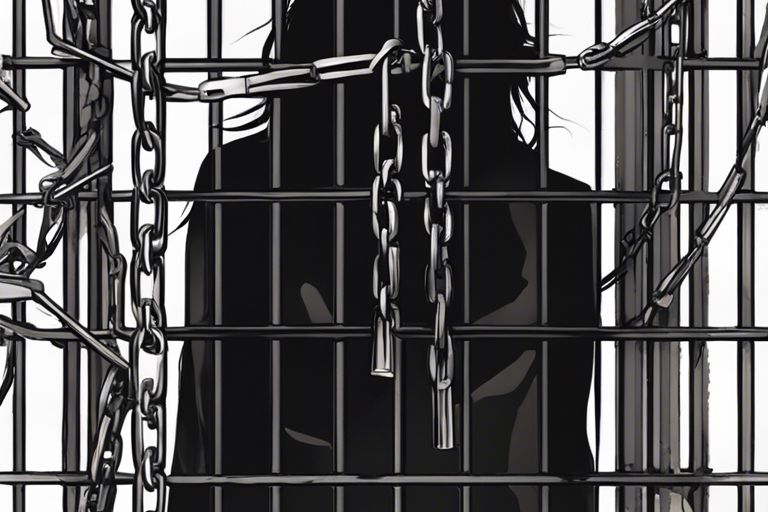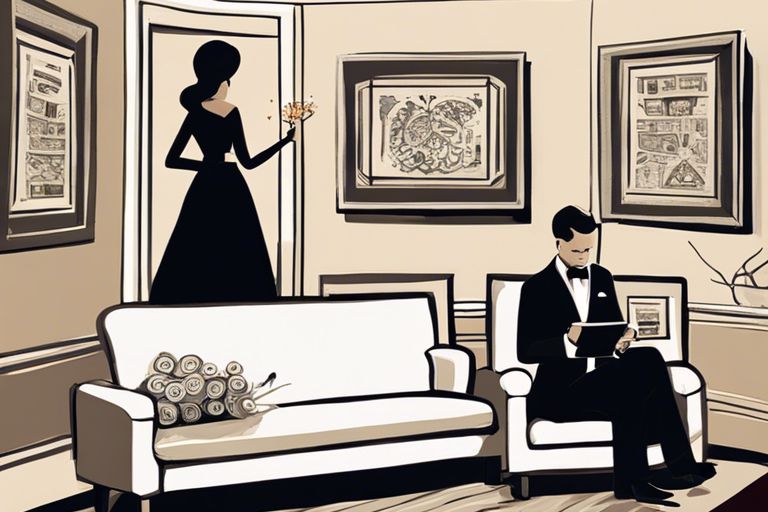Reasons Women Stay in an Unhappy Marriage

It’s not uncommon for women to find themselves in unhappy marriages, but the decision to stay can be complex and multi-faceted.
Understanding the reasons behind this choice can shed light on the emotional and psychological dynamics at play.
In this blog post, we examine into some common reasons why women may choose to stay in relationships that no longer bring them fulfillment and happiness. If you’re looking for insight into this sensitive topic, read on.
Key Takeaways:
- Financial Dependence: Women may feel financially dependent on their spouse, making it difficult to leave the marriage.
- Fear of Being Single: Some women may fear the idea of being single or starting over, leading them to stay in an unhappy marriage.
- Children: Women often prioritize the well-being of their children and may choose to stay in an unhappy marriage for their sake.
- Social Stigma: Society’s view of divorce and the stigma attached to it can make women reluctant to leave an unhappy marriage.
- Hope for Change: Women may hold onto hope that their spouse will change or that the marriage will improve over time, keeping them in the relationship.
Social and Cultural Expectations
The Stigma of Divorce
With the stigma attached to divorce in many societies, women often feel pressured to stay in unhappy marriages to avoid judgment from family, friends, and the larger community. The fear of being labeled as a failure or facing scrutiny can be overwhelming, leading many women to endure unhappy relationships in silence.
Societal Pressure
An additional challenge that women face in unhappy marriages is the societal pressure to prioritize the stability of the family unit over individual happiness. This pressure can come from religious teachings, cultural norms, and even well-meaning loved ones who believe that staying in a marriage, no matter the circumstances, is the right thing to do.
The stigma surrounding divorce and the societal expectation to uphold the family unit can create a suffocating environment for women who are experiencing marital unhappiness. Women may feel trapped between their own desires for a fulfilling life and the expectations placed upon them by society, which can lead to prolonged suffering in an unhappy marriage.
Emotional and Psychological Factors
You may find yourself staying in an unhappy marriage due to various emotional and psychological factors. These factors can range from fear of loneliness to still holding onto hope for change and improvement in the relationship.
Fear of Loneliness
For many women, the thought of being alone after years of being in a relationship can be daunting. The fear of loneliness and not having the same level of emotional support can keep them tied to a marriage that no longer brings them happiness.
Hope for Change and Improvement
Loneliness can be a powerful motivator to stay in an unhappy marriage, especially if there is a glimmer of hope for change and improvement. Women may hold onto the belief that things will get better, even if the reality suggests otherwise.
To truly address the root of these emotional and psychological factors, it’s important for women to recognize and acknowledge their feelings and fears. Seeking support from a therapist or counselor can help navigate these complex emotions and make decisions that are best for their well-being.

Practical Considerations
Financial Security
To ensure financial security, many women may choose to stay in an unhappy marriage. Financial dependence on a partner can make it difficult to leave without a plan in place. This concern is especially prevalent if the woman has been out of the workforce or is the primary caregiver.
Concerns for Children
Children in the equation can be a major reason why women stay in unhappy marriages. Their well-being is often prioritized above personal unhappiness. Emotional and psychological impact on children can weigh heavily on a mother’s decision to stay.
For instance, witnessing constant fighting or experiencing a broken family dynamic can have long-lasting effects on children’s mental health. The desire to shield children from trauma and maintain stability in their lives can be a powerful motivation for a woman to stay in an unhappy marriage for their sake.
Personal Value Systems
Religious Beliefs
After years of exposure to religious teachings and practices, some women may feel a strong sense of obligation to uphold their marriage vows regardless of the challenges they face. Religious beliefs can be a powerful influence on a woman’s decision to stay in an unhappy marriage.
Commitment to Vows and Promises
Vows made during the wedding ceremony hold significant value for many women. Commitment to vows and promises made to their partner can be a driving force in their decision to stay in a marriage, despite hardships.
It is important to note that for some women, commitment to vows and promises does not equate to accepting mistreatment or neglect in a marriage. They may navigate their struggles with the intention of upholding their promises while also seeking a resolution that prioritizes their well-being.
Empowerment to Make a Decision
On a personal level, feeling empowered to make a decision about the future of their marriage can be a significant factor for women. Whether it involves financial independence, emotional support, or self-esteem, empowerment plays a crucial role in their choices.
Commitment to seeking happiness and fulfillment can lead some women to empower themselves to make the decision that aligns with their personal values and well-being.
Seeking Support and Resources
Decision-making in a challenging marriage can be overwhelming, and seeking support and resources is a key step for many women. Whether it’s counseling, therapy, or talking to trusted friends and family, reaching out for help can provide the guidance needed to navigate difficult situations.
This process is crucial for women to understand their options, build a support network, and gain the resources necessary to make informed decisions about their future.
FAQ
Q: What are some reasons women stay in an unhappy marriage?
A: There can be various reasons why women choose to stay in an unhappy marriage, such as financial dependence, fear of being alone, cultural or religious beliefs, children’s well-being, or the hope that things may improve in the future.
Q: How can financial dependence affect a woman’s decision to stay in an unhappy marriage?
A: Financial dependence can play a significant role in why some women stay in unhappy marriages. If a woman relies on her partner for financial support, she may feel trapped or unable to leave due to financial concerns.
Q: What role does fear of being alone play in women staying in an unhappy marriage?
A: The fear of being alone can be a powerful factor that keeps women in unhappy marriages. Some women may prefer to endure a bad relationship rather than face the uncertainty and loneliness of being on their own.
Q: How do cultural or religious beliefs influence a woman’s decision to stay in an unhappy marriage?
A: Cultural or religious beliefs can also impact a woman’s decision to stay in an unhappy marriage. Some women may feel pressure to uphold traditional values or abide by religious teachings that discourage divorce, leading them to stay in a marriage despite being unhappy.
Q: Is staying in an unhappy marriage always the best choice for the children’s well-being?
A: While some women may believe that staying in an unhappy marriage is best for their children’s well-being, it’s necessary to consider the long-term effects of exposing children to a toxic or unhealthy relationship. Children can often sense tension and unhappiness, which may have negative impacts on their emotional well-being.






